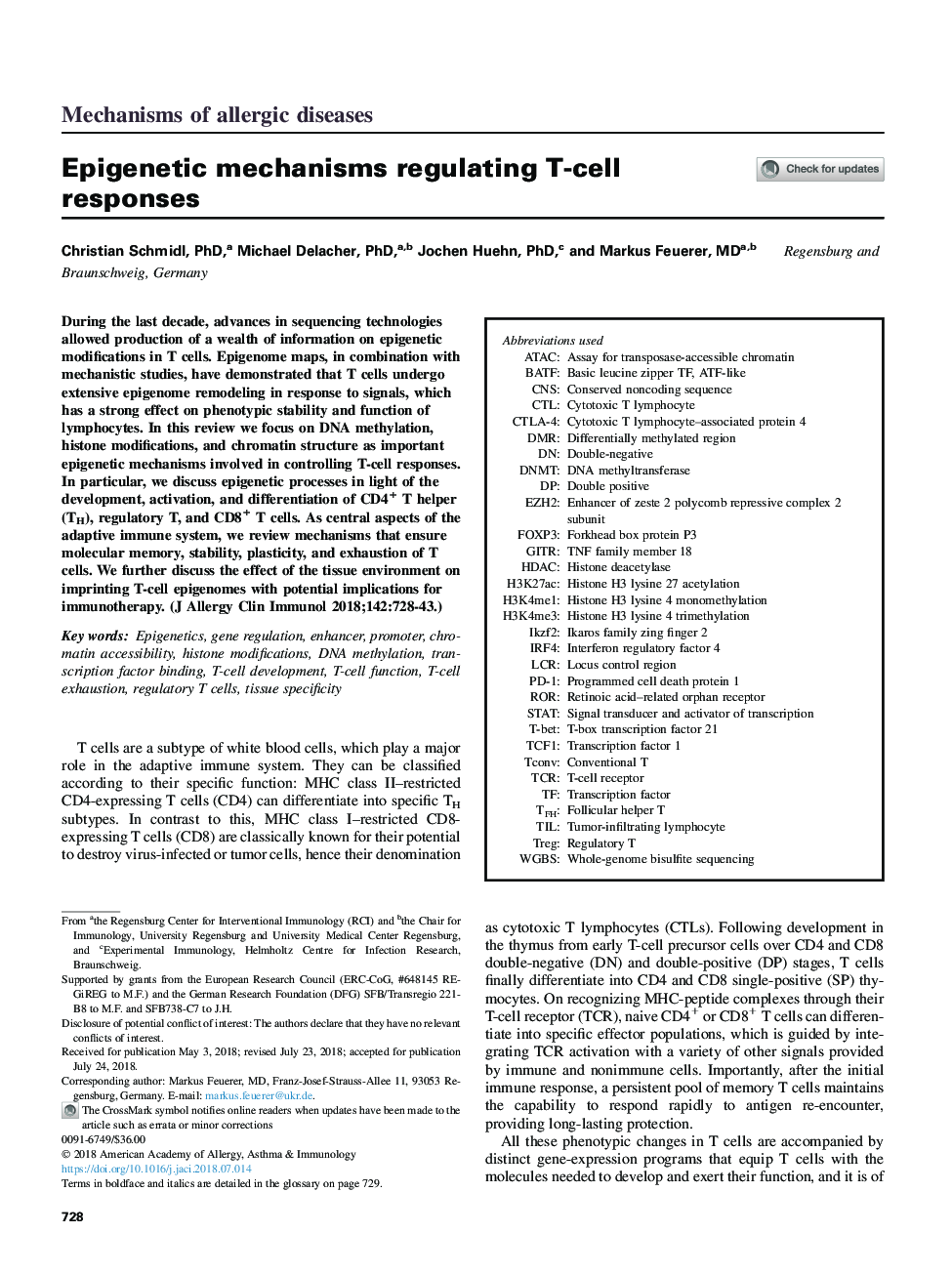| Article ID | Journal | Published Year | Pages | File Type |
|---|---|---|---|---|
| 8963675 | Journal of Allergy and Clinical Immunology | 2018 | 16 Pages |
Abstract
During the last decade, advances in sequencing technologies allowed production of a wealth of information on epigenetic modifications in T cells. Epigenome maps, in combination with mechanistic studies, have demonstrated that T cells undergo extensive epigenome remodeling in response to signals, which has a strong effect on phenotypic stability and function of lymphocytes. In this review we focus on DNA methylation, histone modifications, and chromatin structure as important epigenetic mechanisms involved in controlling T-cell responses. In particular, we discuss epigenetic processes in light of the development, activation, and differentiation of CD4+ T helper (TH), regulatory T, and CD8+ T cells. As central aspects of the adaptive immune system, we review mechanisms that ensure molecular memory, stability, plasticity, and exhaustion of T cells. We further discuss the effect of the tissue environment on imprinting T-cell epigenomes with potential implications for immunotherapy.
Keywords
H3K4me3LCREZH2TFHGITRTconvfollicular helper TIRF4BATFCytotoxic T lymphocyte–associated protein 4FOXP3WGBSH3K27acH3K4me1T-cell exhaustionTCF1T-cell functionCTLA-4enhancer of zeste 2 polycomb repressive complex 2 subunithistone H3 lysine 27 acetylationTregTCrDnmtDMRRORPD-1HDACCTLDNA methyltransferaseSTATtranscription factor bindingEnhancerEpigeneticsTILHistone modificationsGene regulationwhole-genome bisulfite sequencingT-cell developmentT-betTissue specificitychromatin accessibilityCNSconserved noncoding sequencedouble positivedouble-negativeRegulatory T cellsInterferon regulatory factor 4Transcription factortranscription factor 1ATACcytotoxic T lymphocytetumor-infiltrating lymphocyteSignal transducer and activator of transcriptionDNA methylationRegulatory T Differentially methylated regionlocus control regionhistone H3 lysine 4 trimethylationhistone deacetylaseprogrammed cell death protein 1PromoterT-cell receptorRetinoic acid–related orphan receptor
Related Topics
Life Sciences
Immunology and Microbiology
Immunology
Authors
Christian PhD, Michael PhD, Jochen PhD, Markus MD,
